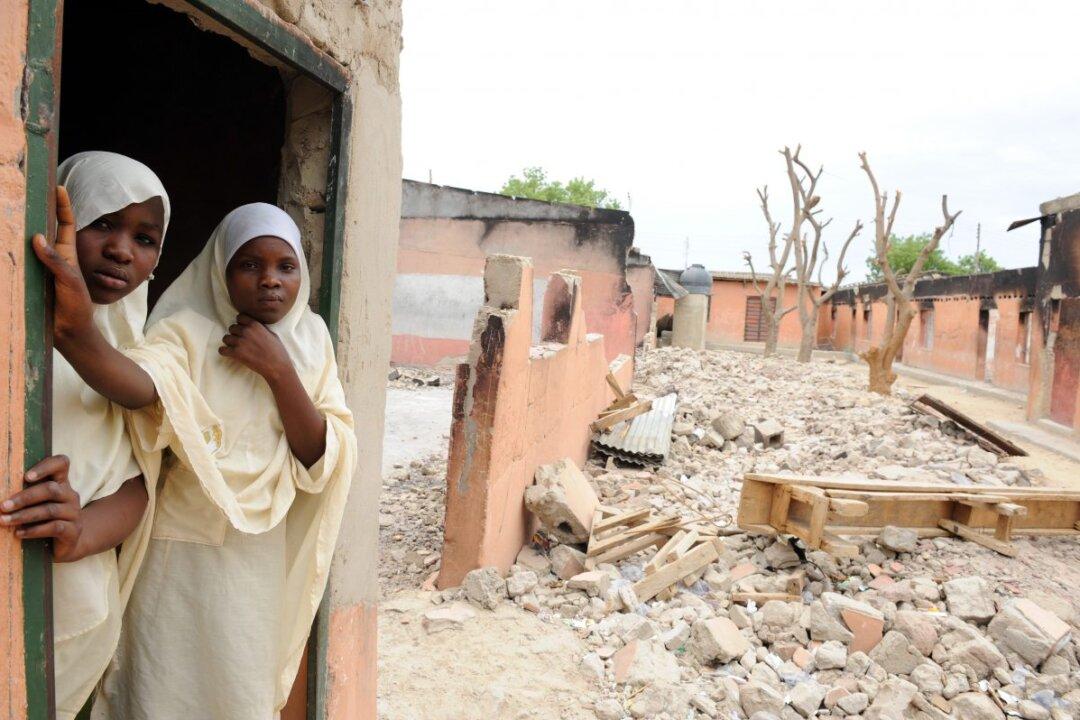At dawn on Feb. 10, a camp for displaced people in the northeast Nigerian town of Dikwa began stirring to life. Three unaccompanied young girls asking for shelter had arrived the day before, and spent the night with approximately 50,000 others who had fled the Islamist terrorist group Boko Haram. That morning, in the midst of a crowd of displaced Nigerians, two of the girls blew themselves up, killing 58 people and wounding scores. The third girl with bombs strapped to her body decided not to detonate, and was taken into custody.
The three girls are part of an appalling trend begun after a multinational coalition last year started pushing Boko Haram out of the territory it controlled in northeast Nigeria. Since June 2014, Boko Haram has used approximately 100 women and girls—some likely kidnapped—in terror attacks, in addition to its usual barbarisms.
Despite the violence, newly-elected President Muhammadu Buhari claimed in December 2015 that Nigeria has “technically won the war“ against the group. As the attack on the Dikwa camp shows, however, his assessment was too optimistic.



